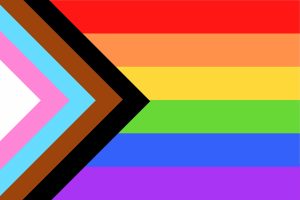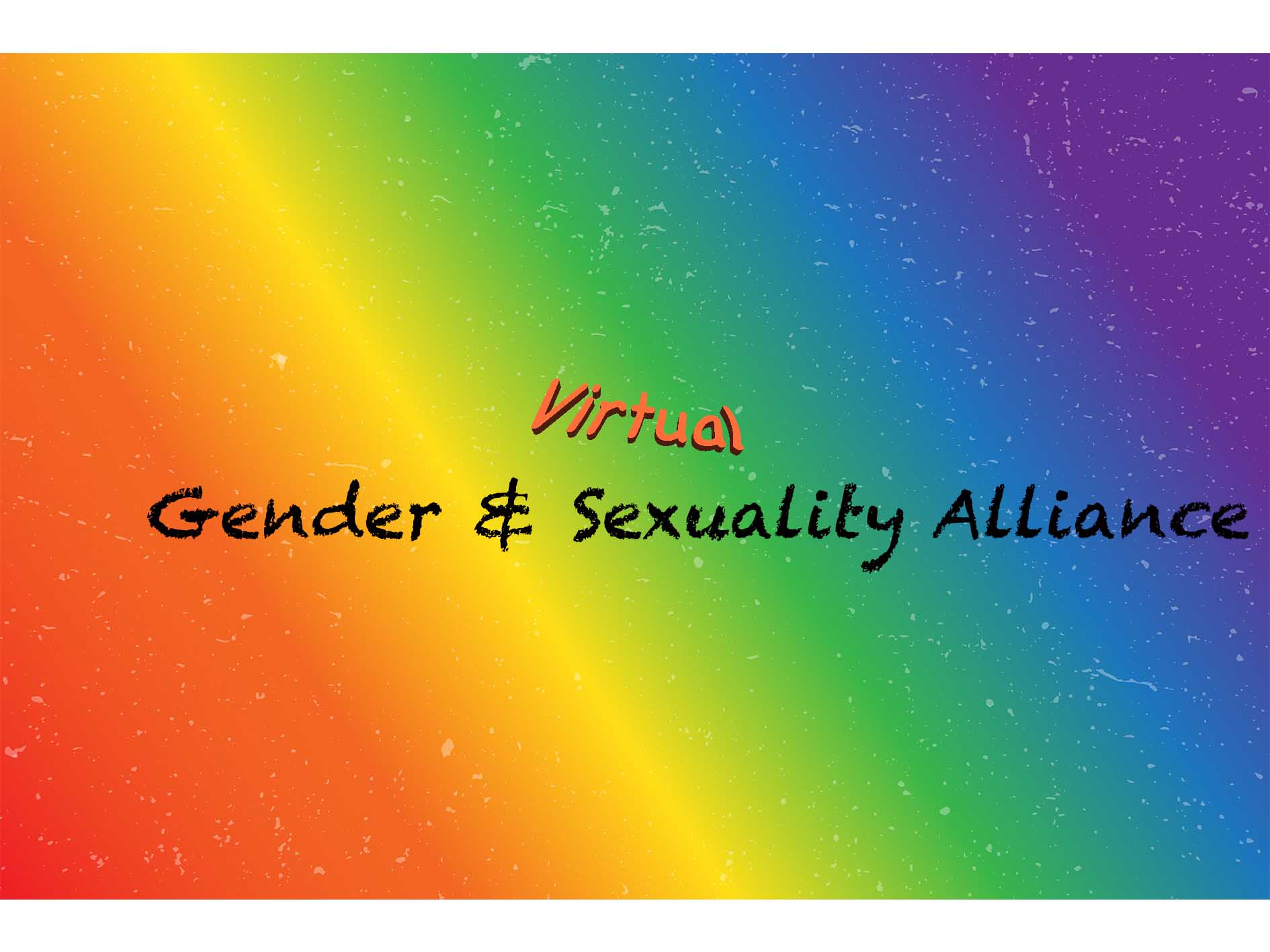Virtual School GSAs: Community against Cisnormativity
It is perhaps hard to overstate the impact of COVID-19 on education in Canada. In Ontario, it spurred the shuttering of schools in the Spring of 2020. Students, families, and education workers across the province did their best to balance learning and well-being through the remainder of the year with the hope of a better plan for the fall. However, despite months of time to prepare, the Conservative government delayed decisions and refused to provide adequate funding to ensure safe environments for students to learn and for their families to work and live. In Toronto, one of the worst-hit areas of the province, this led to huge enrollment in the Toronto District School Board’s (TDSB) newly-created Virtual Schools, with over 18,000 students enrolling in the Virtual Secondary School (VSS). The delays of the provincial government caused the start of the school year to be repeatedly pushed back. The Conservative government’s lack of care for students, families, and education workers was even more pronounced for already marginalized students. Unsurprisingly, there was no thought given to the needs of queer and trans students in an online learning environment.

Website for Gender/Sexuality Alliance
However, these barriers were not top of mind for me when I joined the Virtual Secondary School in October of 2020. I had started the school year teaching in person at North Toronto Collegiate Institute where I had been working with incredible teachers Ayanda Dalamba, Michelle De Braux, and Jenny Hayden to take the school’s Gender/Sexuality Alliance¹ (GSA) online. There, a student had the brilliant idea to create a website for the GSA so any student could access the club. However, when I started at VSS, like so many other teachers and staff thrown into teaching and working online, I was overwhelmed by the demands of transitioning to this new mode: digitizing lessons, familiarizing myself with new online tools and platforms, and connecting with other staff in a plane we were building as we flew. My first week was challenging, but the end of that week gave me some time to reflect and see the need for a Gender and Sexuality Alliance (GSA) in Virtual Secondary School.
Online learning is challenging for many students, but it presents some particular obstacles for queer and trans students. Not all trans and queer students have supportive families, so for some students, there may be places at school where they are able to find acceptance and community. Conversely, school can also be a very harmful space for queer and trans students, a space dominated by queerphobia, transphobia, cissexism, and heterosexism². And of course, many students experience these forms of discrimination alongside others such as racism, sexism, and ableism.
GSAs in schools face perennial challenges. First, widespread transphobia and queerphobia mean that many students who want to attend GSAs do not do so because crossing the threshold into a classroom meeting may mean outing themselves to the entire school. Second, the size of schools and lack of connections between GSAs between different schools mean that it can be hard for students who do attend GSAs to connect with other students who may share their intersectional³ identities. This can be the case for students who are Indigenous, Black, racialized, disabled, and many others. Excitingly, an online GSA presented the opportunity to tackle these challenges.
On the Monday following a weekend of reflection, I sent an email to Kathleen Pyper, a Vice Principal at Virtual Secondary School, with a simple subject line: “GSA?” This set in motion an remarkable well of support. The first call-out for staff support for a student club, resulted in immediate interest from over fifteen staff something that has since grown to over thirty – with nine staff meetings before launching the club for students.
Planning the online GSA
The extensive meetings were necessary because of the unique experiences of trans and queer students. While other clubs would later organize using Google Classrooms, this was off the table as an approach for the VSS GSA in order to not inadvertently out students to their families. As a result, we settled on launching a website to host information for students. That website, crafted by GSA staff advisor Laura Trenton, continues to be our hub and can be found at https://sites.google.com/tdsb.on.ca/vssgsa. Another issue was the number of students Virtual Secondary School. With 18 000 students, we anticipated student interest might number in the hundreds, exceeding the capacity of online conferencing platforms. Priya Gill, another staff advisor, volunteered to tackle the technical challenges of streaming the launch of the VSS Gay Straight Alliance to YouTube, while other staff took responsibility for live comment moderation.
While the discussion online was engaged and celebratory, live moderation was necessary because of the possibility of hateful attacks. Opportunities for students to connect with each other and with supportive staff are at the heart of GSAs. As a result, we launched a number of interest and identity-based groups within the GSA to provide students with the opportunity to meet in smaller groups with staff who share their interests/identities on a regular basis. At present, the following groups meet within the GSA: activism/events, arts, book club, disability, faith, fem, gaming, questioning, students of colour, trans/non-binary/genderqueer, and wellness.
GSA groups
These groups are doing incredible work. The activism/events group has worked with staff advisors Peter Aspery and myself to understand intersectional oppression and make change in VSS. Kelly Beaulieu and Robert Durocher have worked with the arts groups on a number of projects including posters, logos, and t-shirts for the club. In Book Club with me and Priya Gill, students are reading A Two-Spirit Journey: The Autobiography of a Lesbian Ojibwa-Cree Elder by Ma-Nee Chacaby and Mary Louisa Plummer. In the Disability student group, students find a supportive environment with Laura Trenton to create community. Working with Kenny Boothby and Christopher Taylor, the Faith/Religion group are exploring the need for safe and caring spaces to discuss religion, and the intersections of their religious practices with diverse gender and sexuality identities.

There’s more: The Fem group, advised by Laura Trenton, is for all fem students to share their interests and experiences. Kien-Peng Lim advises the Gaming group where students can share in anything from “Among Us” to “Dungeons and Dragons”. The Questioning group, advised by Jenn Covent and Vanessa Michela is a space where students don’t have to label themselves; it welcomes students who aren’t sure about their gender and/or sexual identity. In the Students of Colour group with Priya Gill and Grace Liu, students choose weekly discussion topics and are able to build community and share resources. Kenny Boothby, Jenn Covent, and Avi Magidsohn advise the trans/non-binary/genderqueer group where students are discussing the changes they would like to see in virtual school. Finally, the Wellness group, advised by Teresa Avarino, Julie Beattie, Grace Liu, Ivanka Slywynska, and Tin-Gee Wong helps students build skills for navigating the stress of virtual school, COVID-19, and queer and trans- phobia.
Since our launch, we have hosted a number of events for students including a get-to-know-you Winter Warm-Up, a Sex Ed Q&A with Andrew Townsend from Planned Parenthood Toronto. Another was Black Queer and Trans History with LeRoi Newbold and Twysted Miyake-Mugler. Staff advisors including Pia Berger, jamie berrigan, Rebecca Roach, and Kim Snider have helped guide these events and the GSA as a whole. We’re continuing to plan events for our students such as talks by authors, artists, and activists, lessons in history, and deep-dives into the archives. The year will culminate in Pride Week, a week of events in June to coincide with the TDSB’s celebration of Pride Month. While the VSS GSA is still young, we’ve already formed connections with staff throughout the TDSB, and we hope to continue to provide opportunities for students well beyond the pandemic.
Addressing transphobia, queerphobia, cissexism and heterosexism
In addition to providing a community space, the GSA has also been an important space for students and staff to organize to address transphobia, queerphobia, cissexism, and heterosexism in the board. While online learning has been a part of education for a number of years, COVID-19 has forced a drastic change in scale. While students in Virtual Secondary School do all of their learning online, students who are nominally learning in-person still spend a significant portion of their time in online learning environments. This has brought more trans and queer students than ever face to face with a long-standing problem: pervasive cisnormativity and cissexism in the design of online learning and video conferencing platforms. Cisnormativity is the assumption that people are cisgender, that their gender matches their assigned sex, and cissexism is discrimination against trans people. The first usually leads to the second. Trans students face cissexism in many ways, but in this moment of online learning, the platforms and video conferencing services such as Brightspace, Google Classroom, Zoom, and Google Meet are some of the most ubiquitous locations of cissexism.
These platforms automatically upload certain information for students, including their name as entered in board systems. This has always been an issue for trans students. Many trans students choose to use a name other than the one they were given by their family. For some, being faced with the name they no longer use, their “deadname”, can be very painful, but the systems in use by the TDSB present students with this name by default. Brightspace, Google Classroom, and Google Meet do not allow students to rename themselves. While Zoom does have this option, by default it is turned off when staff create meetings. These default settings reveal the cisnormativity and cissexism which are endemic in the board. Students in the GSA have shared the pain that these actions by the TDSB have caused them as well as actions by staff such as refusing to use students’ pronouns. These platforms must be changed so that students are able to name themselves, but these experiences also reveal much deeper problems.
Changes must be made in online learning tools
We know the changes which must be made. Online learning tools are purchased under contract by the Government of Ontario (Brightspace) and the TDSB (G Suite for Education, includes Google Classroom, Google Meet). Despite repeated complaints from students and staff, the TDSB continues to deal with cissexism on an individual basis. Among the many people involved in entering these contracts for digital learning, there was not enough concern for the well-being of trans students to insist on student re-naming as a requirement of the contracts. Going forward, the TDSB and the Ministry of Education must follow this issue to its root: the tendering of these contracts. A provision for student renaming must be a stipulation of all future contracts. More importantly, the Ministry of Education, the TDSB, and all other school boards in the same situation must question their decision-making processes and evaluate who is making these decisions in order to eliminate cissexism in these institutions.
On many counts, the Virtual Secondary School Gender and Sexuality Alliance has been a huge success. We have connected students and staff who might never otherwise have crossed paths during in-person schooling and created an environment where students can access supports and find community without outing themselves. However, as long as queer and trans students continue to face discrimination, we will continue to support them. Alongside working with students to form community and create moments of queer and trans joy, we will work for a future without the cissexism and heterosexism which is so common today, a future of queered schools for all.

Arthur Burrows, is a Virtual Secondary School GSA Teacher Advisor with the TDSB
For more information about the VSS GSA, find us online:
Website: https://sites.google.com/tdsb.on.ca/vssgsa
Instagram: @vss.gsa
Twitter: @VSS_GSA
¹ A Gender and Sexuality Alliance (GSA) is a safer space for two-spirit, lesbian, gay, bisexual, trans, queer, questioning, intersex, asexual, pansexual (2SLGBTQIAP+) and other gender and sexually diverse students and staff to make community.
² Cissexism: prejudice or discrimination against transgender people. Heterosexism: prejudice or discrimination against queer people
³ Intersectionality is a term coined by Dr. Kimberlé Crenshaw to describe the experiences of Black women who face racism and sexism simultaneously in ways which are compounding and cannot be understood when the forms of oppression are considered separately. The term has since been expanded to apply to any instance of overlapping oppression.

